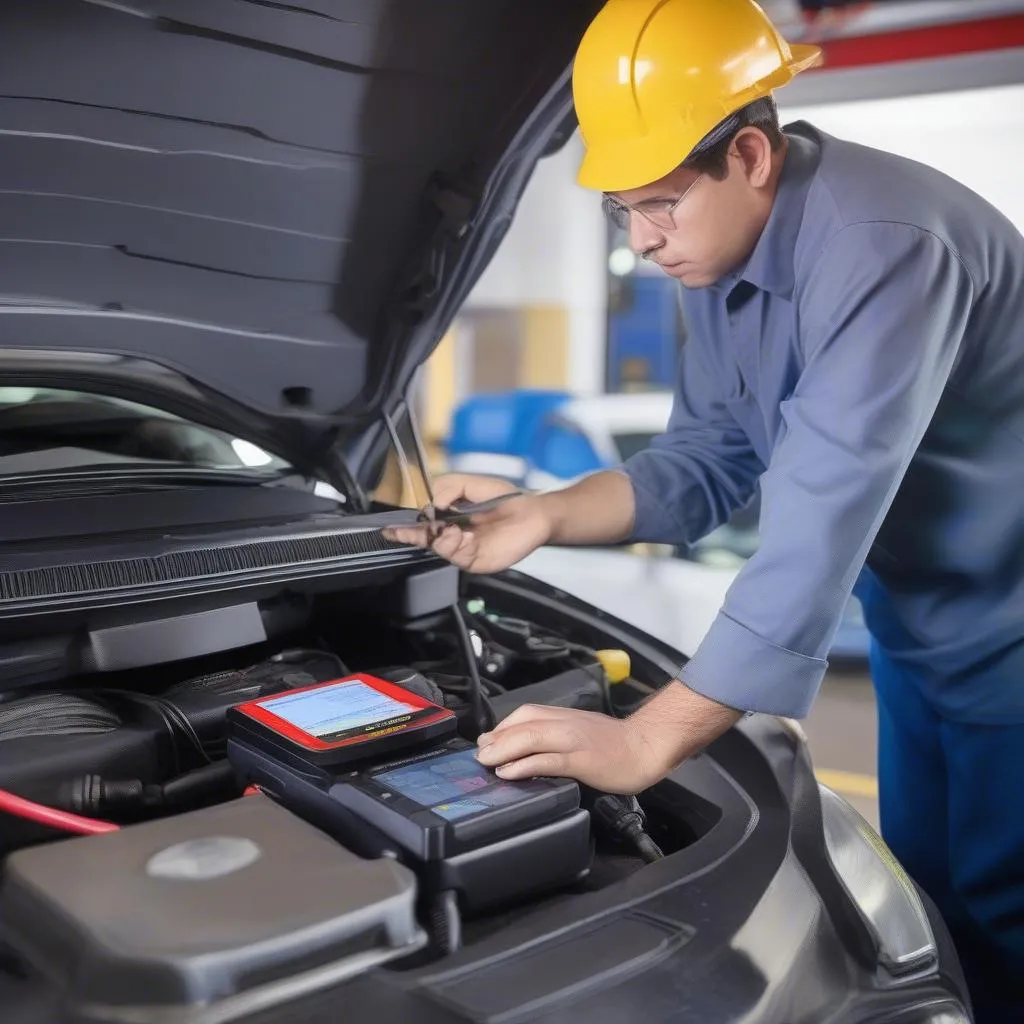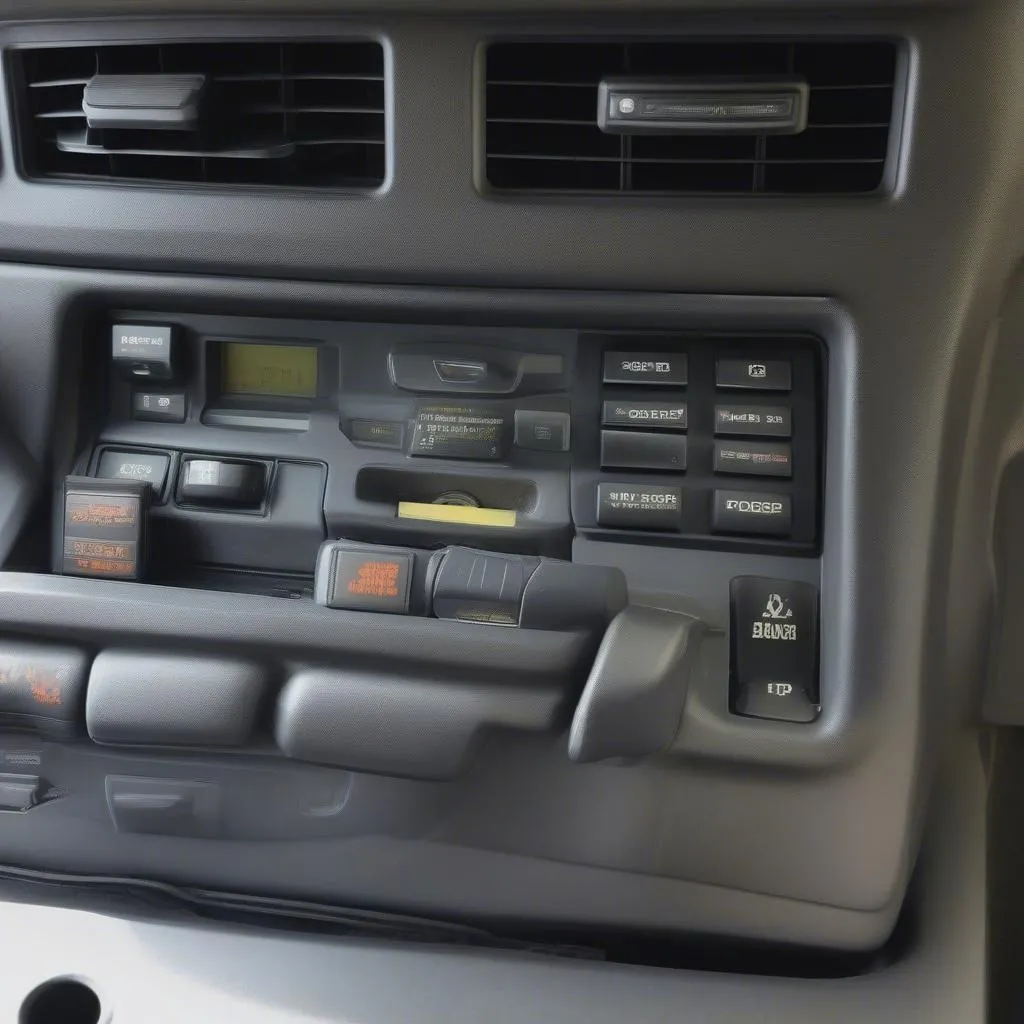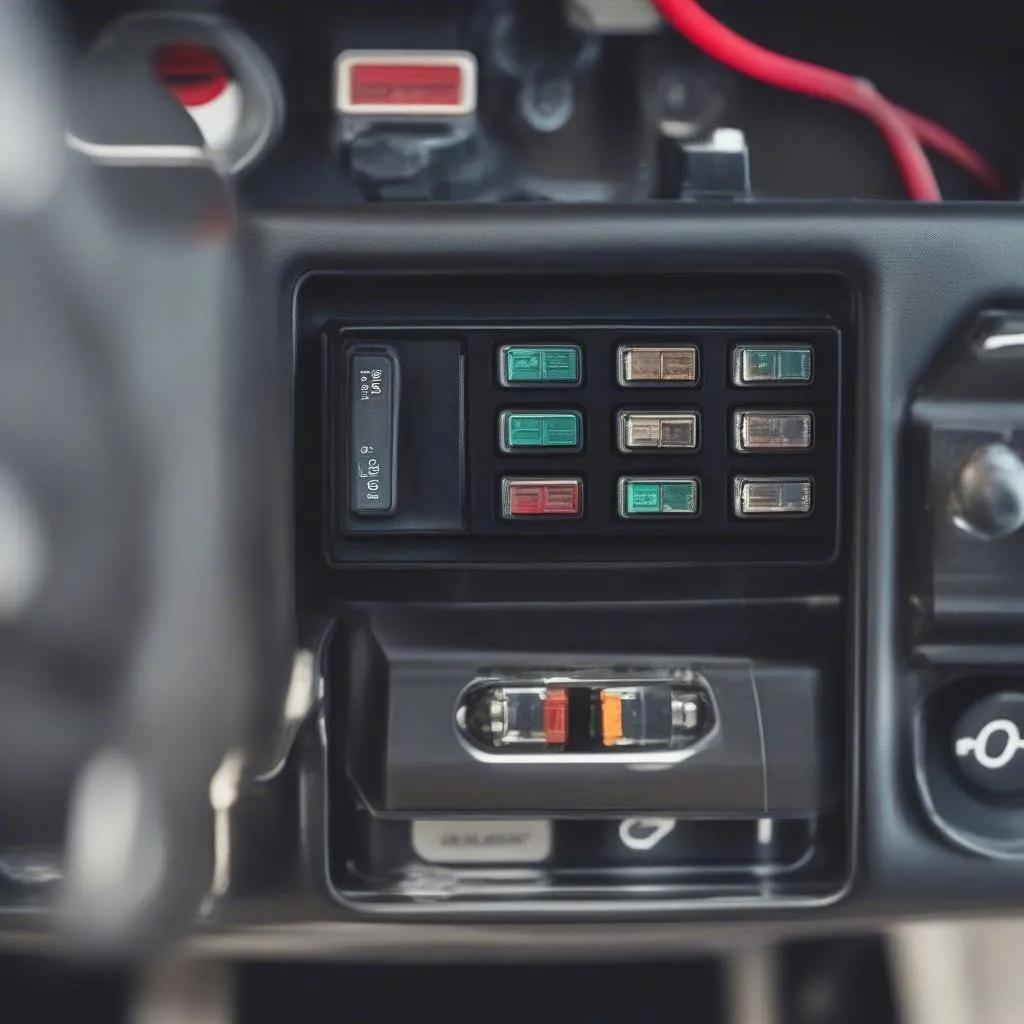You’re driving down the road, enjoying your 2004 Dodge Ram, when suddenly the check engine light starts flashing. You pull over, thinking it might be a simple fix, but when you try to plug in your OBD2 scanner, nothing happens. The dreaded “OBD port not working” scenario. You might think, “What’s going on?” and “How do I fix it?” Don’t worry, we’ve got you covered. In this article, we’ll dive into the common reasons why your 2004 Dodge Ram OBD port might be malfunctioning and how to troubleshoot this issue.
Understanding the Importance of Your OBD Port
The OBD (On-Board Diagnostics) port is a vital component in your vehicle. It’s the gateway for technicians and mechanics to access your car’s computer system, allowing them to diagnose potential problems and get your vehicle back on the road. This port, often located under the dashboard on the driver’s side, connects to a device called an OBD2 scanner which can read and interpret fault codes stored in your car’s computer. These codes can reveal a multitude of problems, from simple sensor malfunctions to more serious engine issues. Being able to connect to the OBD port is essential for any vehicle repair and maintenance, especially for a 2004 Dodge Ram which might have a few miles under its belt.
Common Causes of a Non-Functional OBD Port
1. Blown Fuse:
This is the most common culprit. The OBD port requires a specific fuse to function, and if that fuse has blown, your scanner won’t be able to connect. This can happen due to electrical surges, short circuits, or even just old age. You can find the OBD fuse in the fuse box, which is usually located under the dash or in the engine compartment. Refer to your owner’s manual for the exact location and fuse number.
2. Loose or Damaged Wiring:
The wiring leading to the OBD port can become loose or damaged over time, especially if the port is frequently used. This can interrupt the flow of data between the port and the car’s computer. Check the wiring connections at the port and inspect the wiring for any signs of damage.
3. Damaged OBD Port:
The OBD port itself can be damaged, either due to corrosion or physical damage. This can occur due to exposure to the elements or simply from being accidentally stepped on.
4. Faulty ECU:
The ECU (Engine Control Unit) is the brain of your car and is responsible for communicating with the OBD port. If the ECU is faulty, it might prevent the port from working correctly.
Troubleshooting Your 2004 Dodge Ram OBD Port
- Check the Fuse: Start by checking the fuse that’s responsible for the OBD port. If the fuse is blown, replace it with a new one of the same amperage.
- Inspect the Wiring: Carefully inspect the wiring connecting the OBD port to the car’s computer. Look for any loose or damaged wires. If you find any issues, repair or replace the affected wiring.
- Clean the OBD Port: If the OBD port is dirty or corroded, clean it with a contact cleaner. Be sure to follow the instructions on the cleaner carefully and avoid getting any cleaner on the surrounding electrical components.
- Test the OBD Port: Once you’ve addressed the potential problems, try connecting your OBD2 scanner again. If it still doesn’t work, you may have a more serious issue with the ECU or the port itself.
What To Do When You’re Still Stuck
If you’ve tried all of the troubleshooting steps above and your 2004 Dodge Ram OBD port still isn’t working, it’s time to consult a professional. A qualified technician can use a more advanced diagnostic tool to pinpoint the exact problem and recommend the appropriate solution.
It’s also important to note that a non-functioning OBD port can severely hamper your ability to diagnose and fix issues with your car. You won’t be able to read diagnostic codes, clear error messages, or access other important vehicle information.
Frequently Asked Questions
Q: How do I know if my OBD port is working?
A: The easiest way to check if your OBD port is working is to connect an OBD2 scanner. If the scanner is able to connect and display data, your OBD port is functioning correctly.
Q: Can I fix a damaged OBD port myself?
A: It is possible to replace a damaged OBD port, but it requires some technical expertise and specialized tools. If you’re not comfortable with electrical work, it’s best to leave this task to a professional.
Q: What are some other potential problems with the OBD port?
A: In some cases, the OBD port might be working intermittently. This could be caused by a loose connection, a faulty wire, or even a problem with the ECU.
Q: What if I need to work on my car but can’t access the OBD port?
A: If you can’t access the OBD port, you may need to use a different diagnostic method. Some repair shops have access to more advanced diagnostic tools that can communicate with the car’s computer without using the OBD port.
Looking for More Information?
If you’re interested in learning more about OBD port troubleshooting, you can check out our articles on 2004 Dodge Ram OBD Codes, 2004 Dodge Ram OBD Port Fuse Location, and 2004 Dodge Stratus OBD Port Location.
Let Us Help You!
If you’re struggling with a 2004 Dodge Ram OBD port issue, don’t hesitate to contact us! Our team of experts can provide comprehensive support and help you get your vehicle back on the road.
 OBD Port Diagnostics
OBD Port Diagnostics
 2004 Dodge Ram OBD Port
2004 Dodge Ram OBD Port
 OBD Port Fuse Location
OBD Port Fuse Location
Get in touch with us via Whatsapp: +84767531508
We’re available 24/7 to assist you with your automotive needs!
Please feel free to share your thoughts and experiences in the comments section below.
